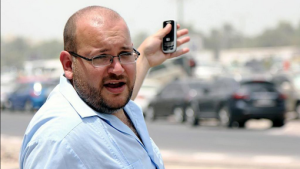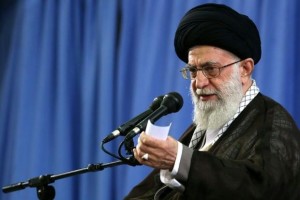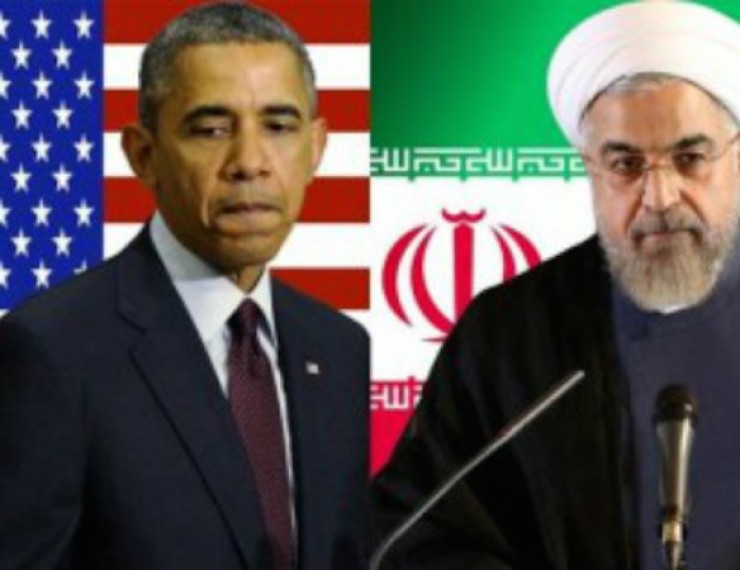A verdict has been reached in Iran’s espionage case against Washington Post reporter Jason Rezaian, though the reclusive nation failed to offer information about what exactly the verdict is and whether a sentence had been handed down. The closed-door trial actually concluded two months ago, and the delay in a verdict has never been explained. And now we have a verdict, but the only information about it from Iranian judiciary spokesman Gholamhossein is that a ruling in the case had been issued and that there “is still the possibility of this rulling being appealed, and it’s not final.”
 Rezaian was arrested by Iranian officials on July 22, 2014 on vague “security” charges, and not indicted on espionage charges until April. The Washington Post and U.S. State Department have vigorously disputed the allegations against the reporter, and most believe that Rezaian, along with two other Americans currently imprisoned in Iran, is being used as a political pawn.
Rezaian was arrested by Iranian officials on July 22, 2014 on vague “security” charges, and not indicted on espionage charges until April. The Washington Post and U.S. State Department have vigorously disputed the allegations against the reporter, and most believe that Rezaian, along with two other Americans currently imprisoned in Iran, is being used as a political pawn.
In fact, President Obama was heavily criticized by Republicans for not securing the release of Americans held in Iran as part of the deal limiting Iran’s nuclear program. However, Obama Administration officials countered that adding other topics to those negotiations would have unduly complicated them.
The obfuscation behind the announcement of Rezaian’s verdict might be linked to a statement made late last month by Iranian President Hassan Rouhani, who suggested that Iran might be open to a prisoner swap. “If the Americans take the appropriate steps and set [19 Iranion Prisoners] free, certainly the right environment will be open and the right circumstances will be created for us to do everything within our power and purview to bring about the swiftest freedom for the Americans held in Iran as well,” Rouhani said.
However, Rouhani’s suggestion runs counter to Iran’s supreme leader, the Ayatollah Ali Khamenei, who announced in early September that his country will not cooperate on anything beyond the nuclear deal, and subsequent lifting of sanctions. “I have not authorized and [we] will not hold talks with [the U.S.], he said, warning the Iranian people not to be grateful for Washington’s role in lifting international sanctions.
Khamenei, who announced in early September that his country will not cooperate on anything beyond the nuclear deal, and subsequent lifting of sanctions. “I have not authorized and [we] will not hold talks with [the U.S.], he said, warning the Iranian people not to be grateful for Washington’s role in lifting international sanctions.
Yep, more obfuscation, but Iran, with its convoluted political system, often sends out mixed messages, so there could actually be hope for a prisoner swap. Chances are, though, that any such deals would be plagued with difficulty and controversy in both countries, as hardliners from both would lambaste and seek to hinder the more moderate factions trying to reach accord.
On the face of it, swapping 19 prisoners held in the U.S. for three U.S. prisoners (while some believe Iran holds four U.S. prisoners, Iran denies holding a CIA contractor missing since 2007) held in Iran seems unfair. Especially given that the three U.S. prisoners were all but secretly jailed and tried on what would seem to be trumped-up charges, while the 19 Iranians received public–and likely fair–trials.
Not only does it appear to be unfair, but any U.S. opponents of such a swap would warn that this would mark the U.S. as caving in to a terrorist government’s extortion demands, which, given the spurious charges against the three U.S. citizens, would seem to be the case.
Meanwhile proponents of such as swap could argue that “deals with the devil” can be justified by making sure innocents don’t suffer years in a horrendous prison in foreign lands. Proponents can also point to the fact that most, if not all, of the 19 Iranians being held in the U.S., were charged with violating import/export laws related to the sanctions against Iran, sanctions that have now been removed, thus making those offences all but moot.
Speaking on a range of issues, including a possible prisoner swap, Iranian President Rouhani said that despite past U.S.-Iranian tensions, “we must all think about mutual interests. Certainly, we cannot live in the past forever.” Iran and the U.S., he said, need to think differently about each other and “leave the heavy burden of the past” behind.
Food for thought?
Hash It Out! Should America continue to seek dialogue and a rapprochement between the U.S. and Iran, or should it continue to try and break the axle of this member of the “Axis of Evil?”
–M.J. Moye





